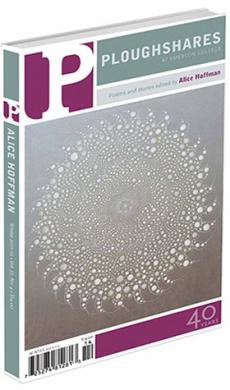Storyteller
Not long ago, I met a woman in her eighties in the parking lot of a library in Florida. I had been at the library to give a reading, and one member of the audience waited for me after everyone else had left, despite the brutal, engulfing heat. The stranger was attractive, elegant, and well-dressed, but clearly emotional. She took me aside, asking to speak with me alone for a moment. As we stood in the shade of a banyan tree, she leaned in close, as if she had a great secret, one she could share with me alone.
She whispered that she had a story.
This was not an entirely unusual occurrence. As I traveled around the country, speaking about my novels and my life as a writer, I was frequently approached by people who had stories of their own, ones they wished to disclose to me in the hopes that I might write them down. Often those stories were the histories of their lives, narratives they themselves had been unable to express in a way that adequately conveyed their experiences and emotions. Because they had not told their stories, they had been forced to carry them; it was as if the untold tales had been stored in backpacks they could not set down, or tied to the soles of their feet with black thread. They were haunted.
I gave advice to such people: writers’ workshops, classes at local colleges, summer programs for beginning memoirists, books that might help them write their own narratives. For some these suggestions were worthwhile, but others needed more help; their stories were somehow trapped inside them, and however powerful these stories might be, they could not write them down. Over time, I came to see these people as if each were a book, a volume that had yet to be written, but which all the same remained real and vibrant and affecting. The stories burned inside them, the fervor flaming ever stronger as years went by.
Stories define who we are and who we wish to be. They warn, they remind, they cut so deeply they can leave a scar. If left untold, they can linger and grow heavier, for every tale is made for two: The teller and the listener. The writer and the reader.
In the scorching parking lot in Florida, beneath the shade of the banyan tree’s extraordinary boughs, the stranger who had waited so patiently began to confide details of her childhood during the Holocaust. She had lived a secret existence, and now, as she began to reveal some of the details of her life to me, she seemed to grow younger, a beautiful, damaged girl who was forced to keep her identity secret. She spoke of fields of lavender, of stone cellars and ice-cold nights, and of the parents she had lost and yearned for even now, as we stood together in the heat, an old woman and a writer who would be old soon enough. The past shimmered around us, palpable, laden with sorrow.
My stranger said there was no time to waste. She felt that her age and the circumstances of her health, along with the decline of others who had survived the Holocaust as children, meant whatever stories had been left untold would soon disappear. She’d waited to speak to me because she wanted me to write hers. If her history was not expressed and examined, it might disappear. If her story was left untold, my stranger feared, the world she had known would disappear when she did, her struggle and her journey worthless if they went unremembered.
Although I had compassion for her plight, I insisted I hadn’t the right to tell another person’s story, especially the story of a survivor of the Holocaust. My stranger, however, disagreed. She took my hand, held it, and said, “I give you permission.”
I give you permission, to imagine, to create a world, to make history come alive, to take my secret and add your own. I give you permission to take on my life and write fiction, to add details that have vanished from mind, to take the map of my soul and use it as a beginning and an endpoint. For me, it was particularly meaningful that this beautiful, aging stranger had sought a novelist rather than a writer of nonfiction and that she believed the truth of her personal experience would best be served by fiction. Certainly, as a reader, I had always discovered the deepest truths in fiction; it was through reading novels that I learned about the world, a world not only of fact but of imagination and emotion. That is what my stranger wanted, what we receive from poetry and from fiction, not a list of real items, but the chart of an emotional landscape. For her, that was the truth.
I owe my stranger a story, one I hope someday to tell so that I might do justice to her experience, but for now I simply owe her a debt of gratitude. She gave me a gift on the day that we met, the right to take any story and make it my own. Most young writers are told to write what they know. I disagree. If you can imagine it, you can tell it. It is within the realm of the imagination that we find our truest stories, stories of the heart and of the soul. We take the world that we know and we reshape it. In doing so we see behind veils, beneath doors, through the dark glass of the past. What we are left with is a circle of shining light, a creation that is both the miracle and the charm, something one must share to give it any worth at all, a story.

